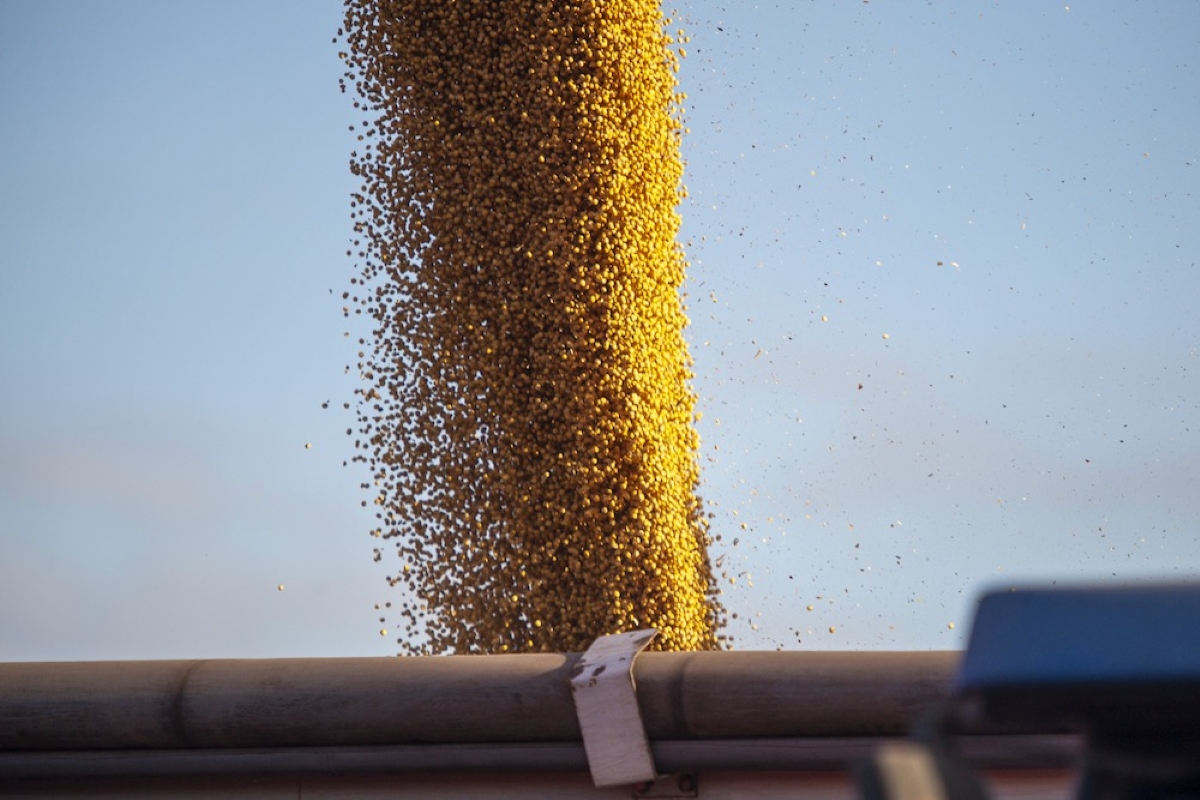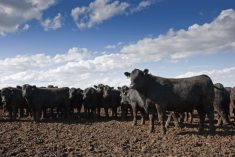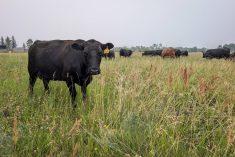A major supply chain corridor connecting Alberta and the U.S. is expected to be cleared of protestors and reopened to traffic on Tuesday, Alberta RCMP have warned.
Protestors in vehicles formed a blockade Saturday on Highway 4 leading to the province’s only 24-hour Canada-U.S. border crossing, at Coutts, Alta., about 100 km southeast of Lethbridge.
Their protest was mounted in tandem with a demonstration still underway in Ottawa concerning current federal COVID-19 vaccine mandates for cross-border truckers, among other grievances related to pandemic-related public health policy and federal politics.
Read Also

Brazil to reap record soy crop in 2025/2026, increase exports
Brazil’s Conab said the country will reap a record soybean crop of 177.6 million tons in the 2025/2026 harvest year, according to data released on Thursday.
As of 8 p.m. MT on Tuesday, the website for U.S. Customs and Border Protection reported its Sweetgrass, Montana facility had one lane open for southbound commercial truck traffic, with an average wait time of seven minutes.
At the same time the Canada Border Services Agency facility at Coutts continued to report the wait time for northbound commercial and non-commercial vehicles as seven hours, the same time frame reported all day Monday.
Listed wait times aside, commercial trucks with vaccinated drivers and other traffic seeking to cross into Montana were reported Monday to have been delayed indefinitely since the blockade began.
The protest has also snarled traffic on the U.S. side of the crossing, where according to Alberta Transportation Minister Rajan Sawhney “between 50-100” Alberta truckers had reportedly been stuck since Saturday.
“Some haven’t eaten, others have medical issues,” she wrote Monday on Twitter.
The Canadian Meat Council, which represents Canada’s meatpacking industry, had tweeted Monday that there were over 150 truckloads of southbound Canadian beef unable to pass at Coutts.
Other drivers seeking to cross into the U.S. were reportedly being asked to divert to another crossing at Carway, Alta., about 130 km west. That crossing is usually only open from 8 a.m. to 6 p.m. MT.
“What may have begun as a peaceful assembly quickly turned into an unlawful blockade. While the Alberta RCMP has been in a position to conduct enforcement, we have been engaged with protesters at the Coutts border crossing in an effort to find a peaceful and safe resolution for all involved,” RCMP said in their statement Tuesday morning.
“We thought we had a path to resolution,” RCMP said Tuesday, without providing details., However, the police said, “the protesters eventually chose not to comply.”
Starting Tuesday morning, RCMP said, “further action is being taken… as this blockade continues to impede the ability for emergency agencies to provide full services to area residents. It has also negatively impacted the flow of goods and services, and impedes the public’s freedom of movement.”
Anyone who “actively blocks” a highway or “aids, counsels or directs a highway to be blocked” may be arrested and charged under the province’s Critical Infrastructure Defence Act, RCMP said.
Anyone participating in the blockade at Coutts or on nearby roads “can also expect enforcement of any contraventions” of the federal Criminal Code and the provincial Traffic Safety Act and regulations, the Mounties added.
“As far as I know, the RCMP are telling people they have to move or their vehicles will be towed and they’ll be arrested,” Coutts Mayor Jim Willett was quoted as saying on CBC Tuesday afternoon.
In a press conference later Tuesday, Alberta Premier Jason Kenney said RCMP had “done what they can over the past four days” to reach an “agreed-upon approach” with protestors to resolve the matter before starting in with enforcement.
However, he said, “the approximately 100 remaining individuals participating in that process have currently refused to negotiate in good faith with the RCMP about an acceptable way forward.”
Kenney also said he had received reports about “people allied with the protestors” assaulting RCMP officers and in one case trying to ram RCMP leading to “a collision with a civilian vehicle in the area.”
Alberta Beef Producers said Monday it was “aware of the situation evolving” at the Canada-U.S. border crossing.
“Our focus remains on the people who are impacted by immediate delays to the beef supply chain and ensuring the welfare of animals traveling through the border,” ABP vice-chair Jason Hale said Monday in a statement.
“The reliability of a stable supply chain is essential to Canadian beef production,” Canadian Cattlemen’s Association president Bob Lowe was quoted as saying Monday on ABP’s site.
“Early in the pandemic, food production and the food supply chain were labelled essential services and critical infrastructure in Canada. Transportation delays can severely impact the beef supply chain on everything from animal feed through to the transport of cattle.”
“I will always stand for Canadians’ democratic rights to peaceful protest, but blockades of critical infrastructure cross the line,” acting provincial Justice Minister Sonya Savage said Tuesday on Twitter. “This blockade must end.”
However, she emphasized in separate tweets, operational enforcement decisions at the site are the responsibility of police services — and the pursuit of charges against any of the protest participants will be an independent decision by Crown prosecutors.
Canada’s rules for cross-border travel by truckers and other essential workers were updated effective Jan. 15. Those rules now require any Canadian truckers and other essential workers who are unvaccinated against COVID-19 and returning to Canada to follow the same quarantine protocols as other unvaccinated Canadians returning to Canada. Unvaccinated foreign truckers attempting to enter Canada would be turned away.
Canada’s rule for unvaccinated Canadian truckers re-entering the country was made moot effective Jan. 22, however, when the U.S. government imposed the same vaccination requirement for foreign truckers and other essential workers entering the U.S. — Glacier FarmMedia Network















